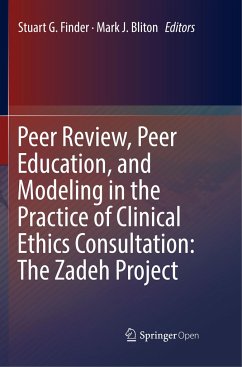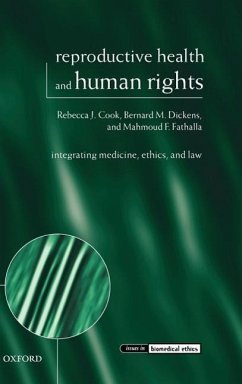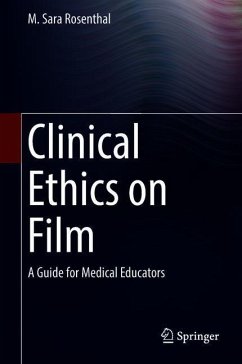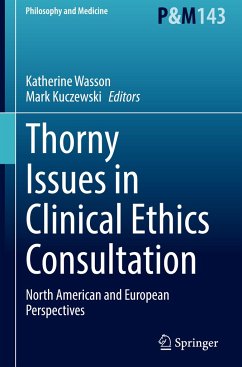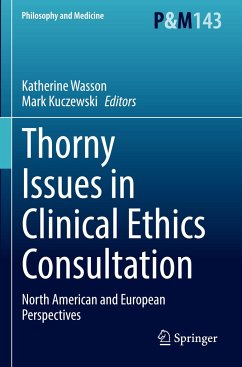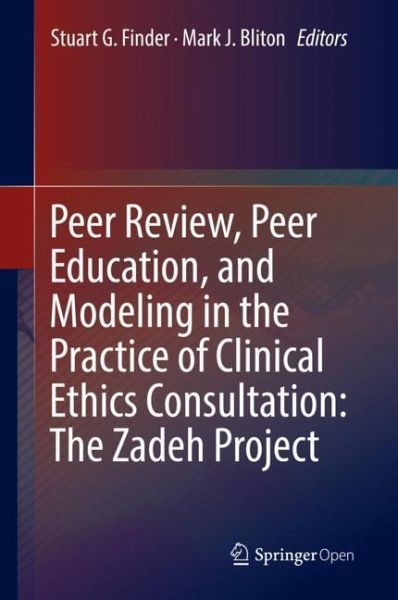
Peer Review, Peer Education, and Modeling in the Practice of Clinical Ethics Consultation: The Zadeh Project
Versandkostenfrei!
Versandfertig in 6-10 Tagen
38,99 €
inkl. MwSt.

PAYBACK Punkte
19 °P sammeln!
This open access book about the Zadeh Project demonstrates and explores a core question in clinical ethics: how can ethics consultants be accountable in the face of a robust plurality of ethical standpoints, especially those that underwrite practices and methods for doing ethics consultation as well as those viewpoints and values encountered in daily clinical ethics practice? Underscoring this question is the recognition that the field of clinical ethics consultation has arrived at a crucial point in its maturation. Many efforts are underway to more formally "professionalize" the field, with m...
This open access book about the Zadeh Project demonstrates and explores a core question in clinical ethics: how can ethics consultants be accountable in the face of a robust plurality of ethical standpoints, especially those that underwrite practices and methods for doing ethics consultation as well as those viewpoints and values encountered in daily clinical ethics practice? Underscoring this question is the recognition that the field of clinical ethics consultation has arrived at a crucial point in its maturation. Many efforts are underway to more formally "professionalize" the field, with most aimed toward stabilizing a specific set of institutional considerations. Stretched between these institutional and practical initiatives resides a crucial set of of ethical considerations, chief among them the meaning and scope of responsibility for clinical ethics consultants. Developed around a long-form case scenario, the Zadeh Project provides a multi-layered series of "peer-reviews": critique of the actions of the case scenario's ethics consultant; reflection on clinical ethics method; examination of the many ways that commitments to method and practice can, and do, intersect, overlap, and alter one another. The design and format of this book thus models a key element for clinical ethics practice: the need and ability to provide careful and thoughtful explanation of core moral considerations that emerge among diverse standpoints. Specifically designed for those studying to become and those who are ethics consultants, this book, with its innovative and multi-layered approach, allows readers to share a peer-review-like experience that shows accountability to be what it is, an ethical, not merely procedural or administrative, undertaking.



